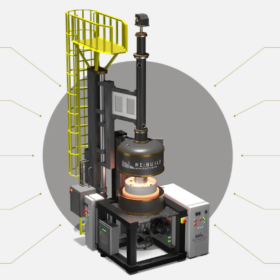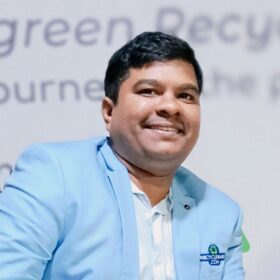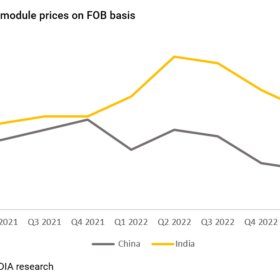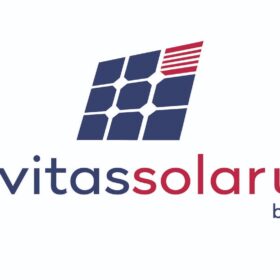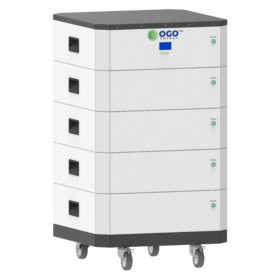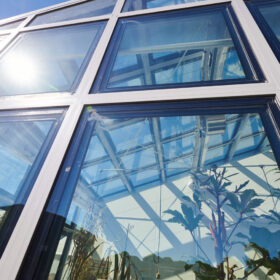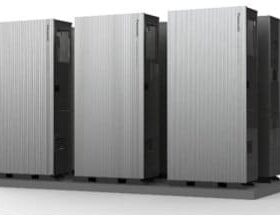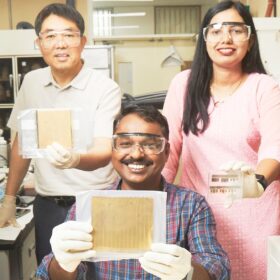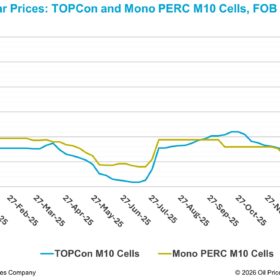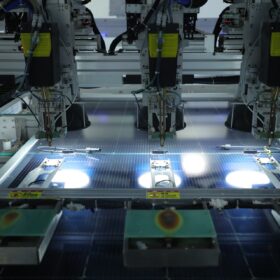Engineers India Ltd appointed as independent engineer for battery capacity under PLI scheme
The Ministry of Heavy Industries has appointed Engineers India Ltd (EIL) as independent engineers to monitor the progress of the advanced-chemistry battery cell projects awarded under the production-linked incentives (PLI) Scheme.
Re:Build Manufacturing introduces solar ingot processor
Massachusetts-based Re:Build Manufacturing has unveiled the RBM600 Solar CZ Puller, a solar ingot processor designed to manufacture high-purity polysilicon ingots for solar panels.
RecycleKaro invests INR 100 crore to set up nickel metal facility in Maharashtra
Maharashtra-based RecycleKaro will set up a plant to produce nickel metal from scrap lithium-ion batteries and nickel hydroxide. The plant is set for commissioning by December end and is expected to produce 1,200 tonnes of nickel metal annually.
India module prices fall in line with international prices
But domestically manufactured solar modules still cost 45-50% more than Chinese products because of import duty on cells and higher cost of domestic manufacturing.
Navitas Solar introduces module manufacturing unit in USA
Indian manufacturer Navitas Solar has collaborated with US-based Sustainable Equity and Colby Solar to set up a module factory named Navitas Solar USA by Colby with a manufacturing capacity of 1.2 GW per annum.
OGO Energy launches residential battery storage solutions
India’s OGO Energy has launched battery energy storage systems with indigenously developed smart battery management system. These systems feature a modular design. Up to five battery modules of 5.12 kWh each can be combined to give a storage capacity of 25.6 kWh.
ClearVue releases results from first long-term study of clear solar glass
Perth-based ClearVue is making significant strides as its transparent solar windows demonstrate tangible outcomes following a two-year study and published paper.
The Hydrogen Stream: New way to make drug materials from hydrogen
UW–Madison has developed an environmentally friendly approach for producing essential drug ingredients by opting for hydrogen, while India has presented new green hydrogen standards.
All-inorganic phase heterojunction perovskite solar cell with 21.59% efficiency
An international research team has developed high-efficiency solar cells with a 21.59% efficiency rating by using an all-inorganic phase heterojunction approach. The team used an anti-solvent-free DHA method to produce high-quality, inorganic perovskite thin films, resulting in better device performance under ambient conditions.
Exide seeks land for additional 6 GWh lithium battery cell capacity
Exide Energy Solutions, which is building a 6 GWh lithium-ion cell manufacturing facility in Karnataka, has sought additional 40 acres of land for expansion to 12 GWh in the state.

